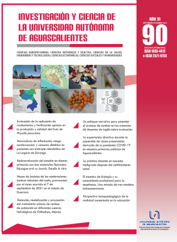A narrative approach to understanding the change process in English Language Teachers’ assessment beliefs
DOI:
https://doi.org/10.33064/iycuaa2023904235Keywords:
Teacher Beliefs, Assessment, EFL, Belief ChangeAbstract
Assessment is a key element in the learning process because it provides information regarding the strengths and the opportunity areas for both teachers and students. Thus, it is important to understand how assessment is conceived within the teacher’s beliefs and their practices in the classroom. The following paper derives from a dissertation with a qualitative approach, which results come from the thematic narrative analysis of the information gathered through interviews with 12 English teachersin two higher education institutions in Aguascalientes, Mexico. As a conclusion, teachers’ beliefs about assessment are distinguished as being 1) of dynamic nature; 2) put into a mediation process when challenged by the environment; and 3) partially related to what teachers end up doing in the classroom, resulting in adjustments that teachers perform on both, assessment beliefs and practices.
Downloads
Metrics
References
• Casanova, M.A. (1999). La evaluación educativa. México, D.F.
• Cota, S. y Ruíz Esparza, E. (2013). Pre-service teachers’ beliefs about language teaching and learning_ A longitudinal study. PROFILE, 15(1), 81-95
• Crhová, J. y Domínguez, M.R. (2014). Change in beliefs on language learning of BA students in language teaching. Journal of Language and Cultural Education 2(2), 16 – 32
• Creswell, J. (2005). Educational research: Planning, conducting, and evaluating quantitative and qualitative research. Upper Saddle River: Pearson Education.
• Debreli, E. (2016). Pre-service teachers' belief sources about learning and teaching_ An exploration with the consideration of the educational programme nature. Higher Education Studies, 6(1), 116 – 127.
• Eisenhardt, S., Besnoy, K., y Steele, E. (2012). Creating dissonance in pre-service teachers’ field experiences. STRATE Journal, 21(1), 1 – 10
• Giboney, C.R. (2016). From student to teacher: changes in preservice teacher educational beliefs throughout the learning-to-teach journey. Teacher Development, 20 (3), 364 – 379.
• Kavanoz, S., Gülru, H., y Varol, B. (2017). Evolvement of pre-service language teacheers' beliefs through teacher education. International Journal of Progressive Education, 13(1), 119 – 135.
• Hart, L.C. (1999). Teachers' perceptions and beliefs about factors that influence change in their pedagogy. In E. Pehkonen & G. Toemer, (Eds.), Mathematical beliefs and their impact on teaching and learning mathematics (pp. 43-50). Proceedings of the School Science and Mathematics Preservice Teachers' Beliefs Conference on Mathematical Beliefs and Their Impact on Teaching and Learning. Oberwalfach, Germany: Universitat of Duisburg. Hermann, B.A. (1990). Teaching preservice teachers how to model thought processes. Teacher education and special education, 13(2), 73-81.
• Karaagac, M.K. y Threlfall, J. (2004). The tension between teacher beliefs and teacher practice: the impact of the work setting. Proceedings of the 28th Conference of the International Group of the Psychology of Mathematics Education, 3, 137 – 144.
• Martínez-Rizo, F. (2012). La evaluación formativa del aprendizaje en el aula en la bibliografía en inglés y francés. Revisión de literatura. Revista Mexicana de Investigación Educativa, 17(54), 849-875
• Mohammadabadi, A.M., Ketabi, S. y Nejadansari, D. (2019). Factors influencing language teacher cognition: An ecological systems study. Studies in Second Language Learning and Teaching, 9(4), 657 – 680.
• Pajares, F. (1992). Teachers' beliefs and educational research: Cleaning up a messy construct. Review of Educational Research, 62(3), 307 – 332.
• Raths, J. (2001). Teachers’ beliefs and teaching beliefs. ECRP, 3(1), 1 – 12.
• Smrtnik Vitulic , H. y Lesar, I. (2017). Changes in beliefs regarding good teachers and the characteristics of child development of primary education students. CEPS Journal, 7(4), 185 – 206.
• Tillema, H.H. (2000). Belief change towards self-directed learning in student teachers: Immersion in practice or reflection on action. Teaching and Teacher Education, 16, 575 – 591
Published
License
Copyright (c) 2023 José Armando Collazo García, Victoria Eugenia Gutiérrez-Marfileño

This work is licensed under a Creative Commons Attribution-NonCommercial-ShareAlike 4.0 International License.
Las obras publicadas en versión electrónica de la revista están bajo la licencia Creative Commons Atribución-NoComercial-CompartirIgual 4.0 Internacional (CC BY-NC-SA 4.0)





